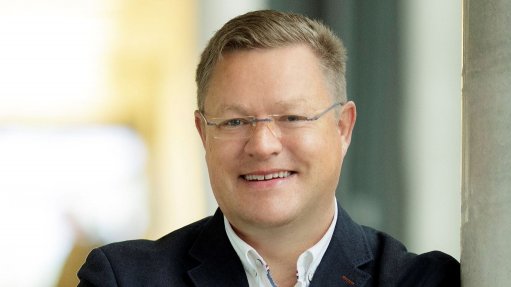
IGUA-SA CEO Jaco Human
South African industrial users of natural gas are moving forward with the establishment of a R10-billion-a-year gas-aggregator company to provide the basis for large-scale gas infrastructure investments and transactions.
The establishment of this gas aggregator (GasCo) will enable South African manufacturing to transition from a fragmented market to a consolidated and structured market enabling secure, long-term gas infrastructure development and supply, says the Industrial Gas Users Association of Southern Africa (IGUA-SA).
“Gas aggregation paves the way for a more mature, transparent and equitable gas market in South Africa. We anticipate that GasCo will be a platform to enable inclusive, effective, long-term participation alongside government, Sasol, international oil companies, gas suppliers and transporters and financial institutions, all of whom will play a critical role in the process moving forward,” says IGUA-SA CEO Jaco Human.
Since the onset of large-scale natural gas consumption in 2004, IGUA-SA notes that the South African industry has remained commercially and technically reliant on the continued supply of natural and methane-rich gas from Sasol.
It explains that, owing to natural gas resource constraints, the South African industry has to consider alternative supply options from June 2026 onwards.
Given the imminent crisis between this supply cut-off and the time needed to establish alternative supply options, this decision required industrial users of natural gas to make long-term strategic decisions to ensure continued gas-energy supply, the association says.
Hence, the formation of GasCo is aimed at securing alternative gas supply within the timeframes needed to avert permanent damage to South African manufacturing and employment.
IGUA-SA says South African industrial users of natural gas employ more than 70 000 people and contribute more than R500-billion a year to the South African economy.
IGUA-SA says GasCo will act on an inclusive basis as an intermediary marketplace across the entire gas supply chain, facilitating the development of gas supply infrastructure, sourcing, transport and distribution of gas to offtakers.
This includes consolidating the demand from the various offtakers, and negotiating with gas infrastructure developers, suppliers and systems operators for efficient pricing and terms of gas delivery to help bridge the gap between supply and demand.
“The close, constructive collaboration of all stakeholders is a key prerequisite to finding the best possible solution for South Africa Inc and our engagements continue in parallel as we move forward to determine this solution.
“Sasol remains an important role player in the transition to imported gas, as will related government entities, including the Central Energy Fund and the departments of Trade, Industry and Competition, and Energy and Electricity,” says Human.
GasCo will take the form of an externally funded, private company based on the guiding principles of cost-pass through (thereby operating as a non-profit), full transparency, a low asset and operational base and proportional representation.
IGUA-SA says gas aggregators are typically incorporated as State-owned or State-operated entities, with risk borne by the State in the national interest, given that the primary and often sole purpose behind their establishment is to secure a steady flow and stable pricing for gas in their respective countries to support their manufacturing and power-generation sectors.
In the absence of such a State-coordinated mechanism in South Africa, the association says that the industry has been driven to establish this model privately, on a nonprofit basis.
IGUA-SA says the private sector is compelled to carry the additional fiscal burden associated with such an initiative in the interest of continued operations and the national economy.
“The commercial basis for aggregation and operations will be to recover costs – and no more. These costs will include the cost of the procurement of gas, gas transportation and operation costs and administration.
“Commercial participation and preferential rights will be based on volume proportionality. GasCo will also ensure full upstream contract visibility, with organised participation in supplier negotiations,” explains Human.
The association notes that a feasibility study has previously been concluded, demonstrating the legal, regulatory, economic and operational viability of the proposed company.
It adds that a nonexclusive joint venture agreement is being concluded with about 30 small and large users of piped gas in South Africa following the earlier conclusion of a memorandum of understanding.
Detailed implementation plans and budgets have been drawn up on the basis of an earlier block exemption granted by the Competition Commission for an initiative of this nature, says the IGUA-SA.
Term sheets will be concluded with infrastructure developers, gas suppliers and gas transportation service providers in the coming months, and financial instruments to facilitate transactions of this scope and magnitude are being developed with major financial institutions, it adds.
In South Africa alone, IGUA-SA says, current demand for gas – 300 PJ/y – already exceeds the limited supply – 180 PJ/y.
The potential development of gas demand in Southern Africa is principally contingent on decisions to invest in long-term domestic production, as well as short- and medium-term investment in liquefied natural gas import and distribution infrastructure.
By taking the lead in the establishment of this GasCo, the association says the South African industry hopes to pave the way for a mature, stable and growing gas network in Southern Africa. However, the process remains fraught with risk and unresolved challenges.
It notes that the biggest risk faced by the industry remains gas energy security from 2026 onwards. Constructive discussions continue with Sasol and international oil companies, gas infrastructure developers and operators to ensure continued gas supply beyond 2026.
“We are confident that the establishment of the GasCo is a necessary first step towards a broadly beneficial outcome.
“Long-term, constructive collaboration remains critical for the development of associated markets, and we continue to actively engage with all stakeholders with the ultimate goal of enhancing South Africa’s industrial and manufacturing capacity, economic development, and ability to create and sustain employment,” Human concludes.